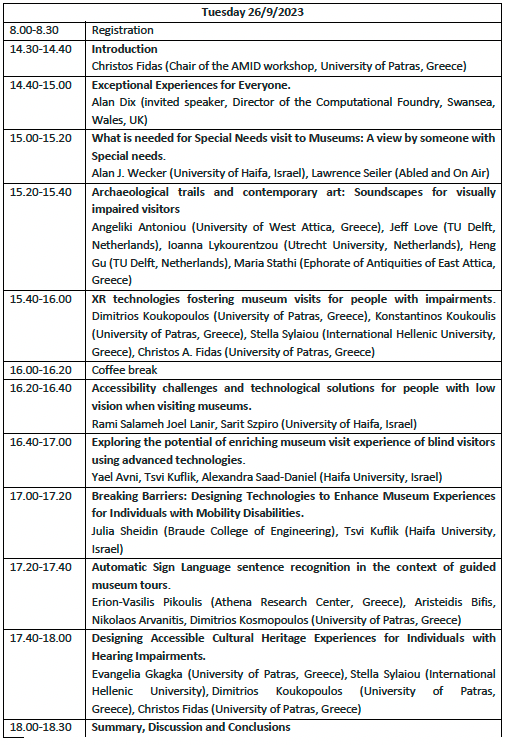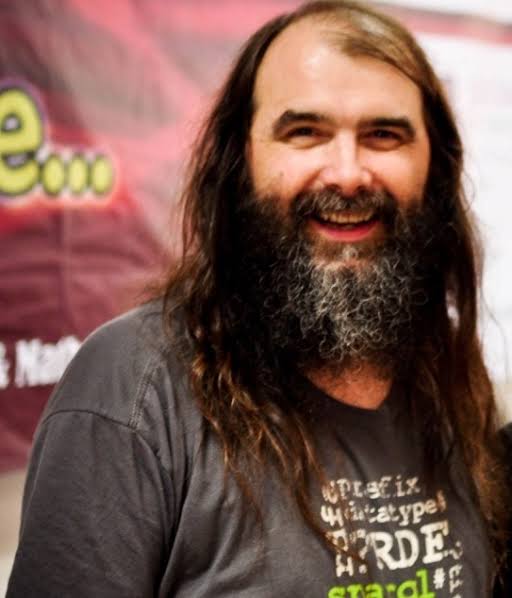Invited Talks
We are delighted to have Alan Dix as one of our invited speakers, who will share valuable insights and perspectives. We invite submissions from the research community to contribute their innovative ideas, empirical studies, and design approaches in this important domain. This workshop promises to be an engaging platform for knowledge exchange, collaboration, and the advancement of accessible and multimodal museum interaction design.
Workshop Programme
The ΑΜΙD workshop will take place on Tuesday 26 September from 14.30 to 18.30 (EEST time) at the Eugenides Foundation in conjunction with MobileHCI 2023.
Workshop Programme

Workshop Theme
AMID workshop focuses on methods, tools, and techniques to design and develop mobile museum applications for people with impairments. More specifically, the research that will be presented will relate to technological solutions that support museum visitors with visual, motor, dexterity, hearing, and cognitive impairments. The rationale for the workshop is premised on the significance of providing meaningful and engaging museum experiences to visitors through mobile applications with customized interfaces adapted to the characteristics of various groups of people with special needs. Furthermore, the use of Mixed Reality, i.e., the combination of real and virtual worlds, will be addressed in connection with the quest to foster access and inclusion with regard to museums, and empowerment of people with impairments. The workshop's primary goal is to bring together leading experts to discuss the field's challenges and propose solutions concerning methods, tools, and techniques in HCI, present their research on user requirements, and system design to advance knowledge with the view to optimizing uses of emerging technologies for enhancing cultural inclusion.
Topics of Interest
· Assistive technologies
· Serious Games
Workshop Chairs
Call for Papers
We invite authors to submit original papers describing their research, experiences and lessons learned, novel approaches, solutions, tools and services in all areas of adaptive and personalized privacy and security. We welcome both quantitative and qualitative approaches. Main aim is to shape novel and disruptive ideas and solutions for achieving a viable balance between usability, privacy and security, driven by user modeling and adaptivity technologies.
All workshop papers must contain original, previously unpublished, research work adhering the two publication types:
- - Full research papers (8-14 pages, excl. references), proposing new approaches, innovative methods and research findings. They should make substantial theoretical and empirical contributions to the research field.
- - Short research papers (up to 7 pages, excl. references), presenting works in progress, lessons learnt, emerging or future research issues and directions on topics related to APPS.
The accepted papers will be published on the online open-access platform CEUR-WS
Submission and Publication
All papers will undergo a peer review process by at least two expert reviewers to ensure a high standard of quality. Referees will consider originality, significance, technical soundness, clarity of exposition, and relevance to the workshop's topics.
Contributions to the 1st AMID Workshop should be formatted according to the Springer conference template.
The AMID Workshop Proceedings are accessible through the CEUR (indexed in SCOPUS) at https://ceur-ws.org/Vol-3622/



